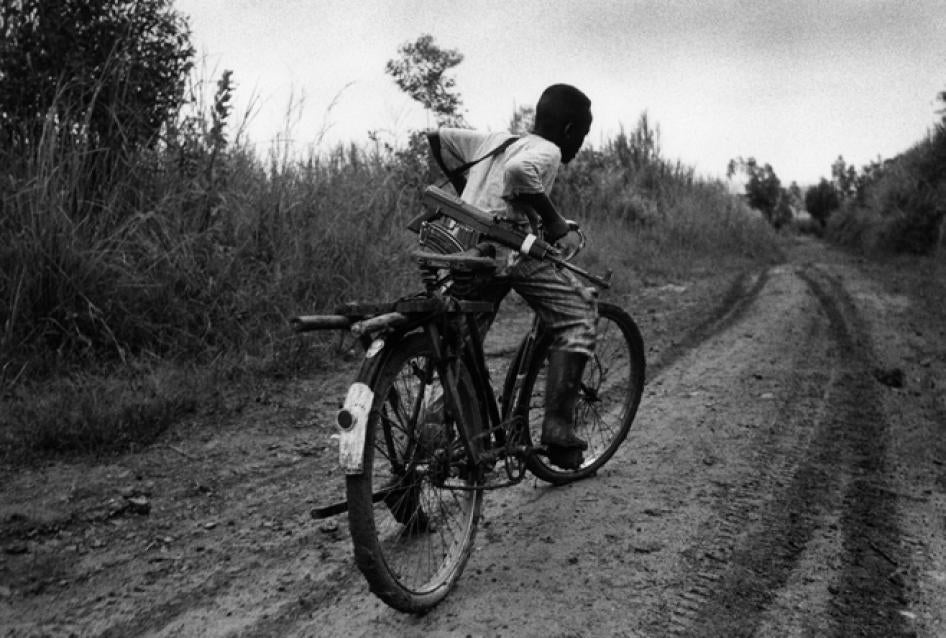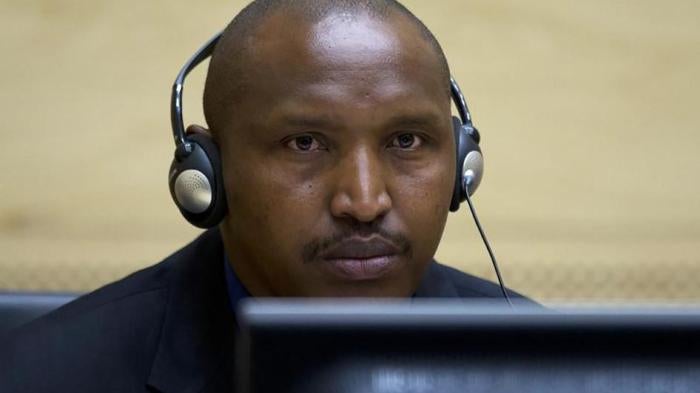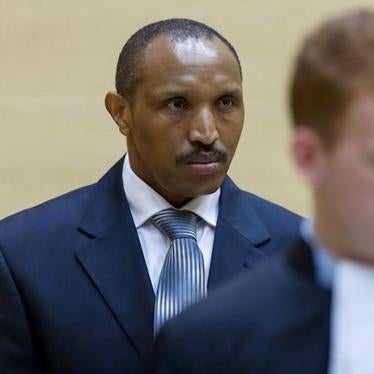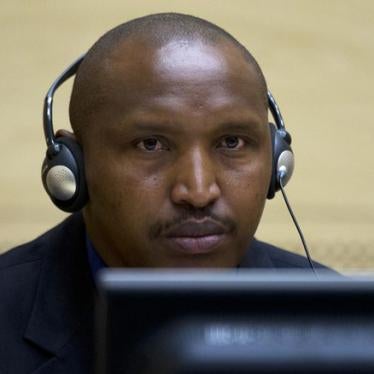For over a decade, Human Rights Watch has documented atrocities committed by former Congolese general Bosco Ntaganda and his troops. Sought since 2006 by the International Criminal Court, Ntaganda has been accused of alleged war crimes and crimes against humanity in Congo. In March 2013, Ntaganda turned himself in to the United States embassy in Rwanda. He was flown to The Hague where the trial in his case began in September 2015. These witness accounts are excerpts from “The Curse of Gold” report, based on research conducted by Human Rights Watch and interviews with victims and witnesses of abuses committed by Bosco Ntaganda’s forces in 2002.
“The UPC [Union of Congolese Patriots] arrived in Pluto at about 9:00 a.m. If they caught someone they would ask them their tribe. If they were not their enemies they would let them go. They killed the ones who were Lendu. The UPC would shout so everyone could hear, ‘We are going to exterminate you – the government won’t help you now.’”
(Witness testimony of the massacre at Mongbwalu, Democratic Republic of Congo, November 2002. Human Rights Watch interview, Beni, February 27, 2004.)
“The Hema [UPC] and [Commander Jérôme’s forces] came into town and started killing people. We hid in our house. I opened the window and saw what happened from there. A group of more than ten with spears, guns and machetes killed two men in Cité Suni, in the center of Mongbwalu. They took Kasore, a Lendu man in his thirties, from his family and attacked him with knives and hammers. They killed him and his son (aged about 20) with knives. They cut his son’s throat and tore open his chest. They cut the tendons on his heels, smashed his head and took out his intestines. The father was slaughtered and burnt. We fled to Saio. On the way, we saw other bodies.”
(Witness testimony of the massacre at Mongbwalu, Democratic Republic of Congo, November 2002. Human Rights Watch interview, Oicha, February 2003.)
“The [UPC] were using incendiary grenades and burned houses that still had people in them, like Mateso Chalo’s house. Ngabu was a Lendu who couldn’t flee. He had lots of children and was trying to carry them. They shot at him. He fell on one of his children and died. Another woman, Adjisu was shot in the leg. She had her baby with her. They caught her as she was trying to crawl along the ground. They cut her up with machetes and killed her. They cut the baby up as well. Some people were thrown into the latrines. The UPC said they were now the chiefs.”
(Witness testimony of the massacre at Mongbwalu, Democratic Republic of Congo, November 2002. Human Rights Watch interview, Beni, February 27, 2004.)
“I saw many people tied up ready to be executed. The UPC said they were going to kill them all. They made the Lendu dig their own graves. I was not Lendu but forced to dig as well or I would be killed. The graves were near the military camp. It started in the morning. They called people to quickly dig a hole about four feet deep. They would kill the people by hitting them on the head with a sledgehammer. People were screaming and crying. Then we were asked to fill the grave up. We worked till about 16:00. We buried the victims still tied up. There must have been about four [UPC] soldiers doing the killing. They would shout [at the victims] that they were their enemies. One of the officers present was Commander David [Mpigwa]. Commander Kisembo was also there and he saw all this. He was giving the orders along with David. I don’t know how many they killed in total, but I must have seen about one hundred people killed.”
(Witness testimony of the massacre at massacre at Kilo, Democratic Republic of Congo, December 2002. Human Rights Watch interview, village near Mongbwalu, May 6, 2004.)











